$14 salads? No wonder high-tech indoor farms fail in Detroit, critics say
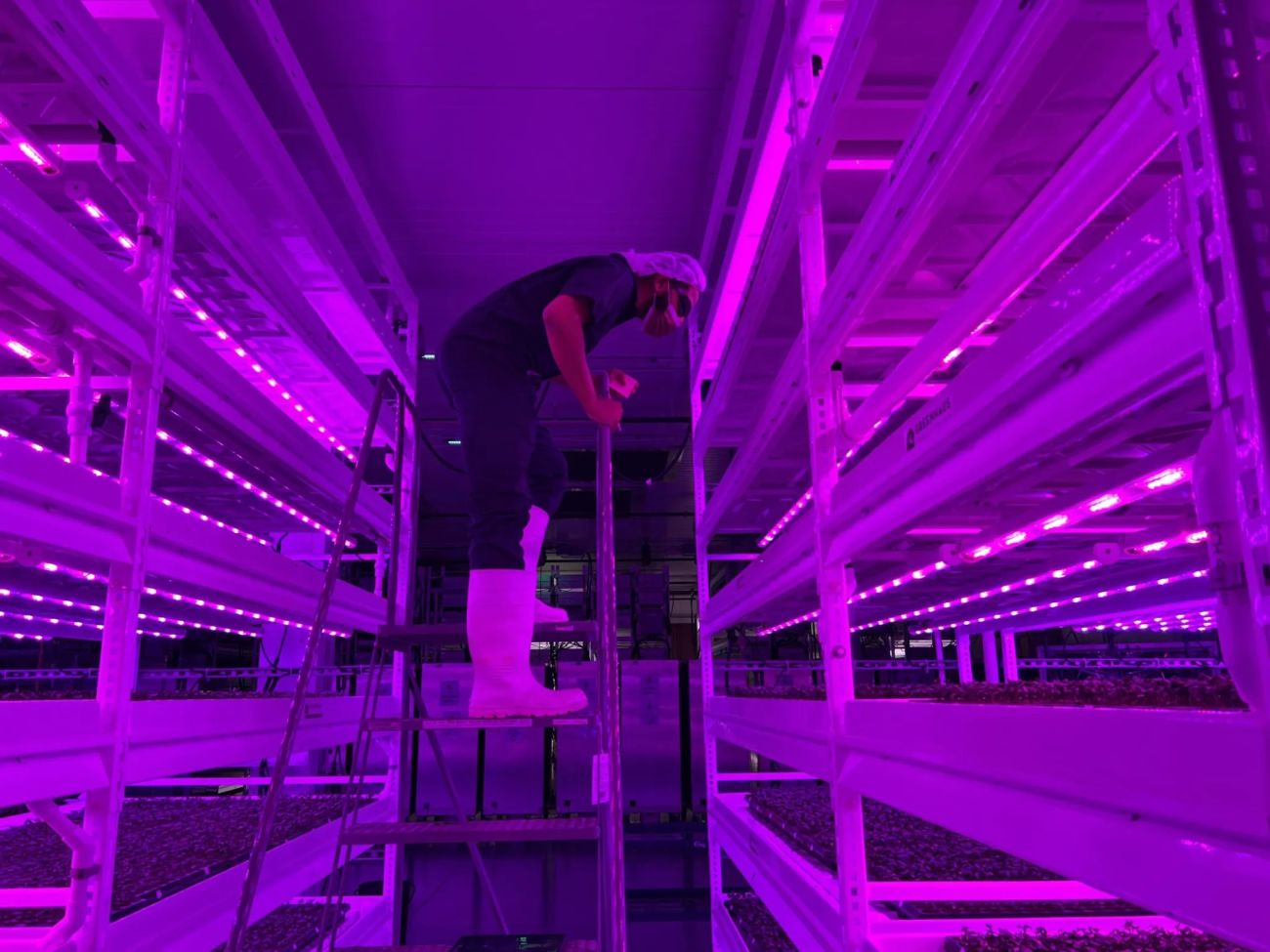
Planet Detroit and BridgeDetroit collaborated on this story
In a few days, the purple LED lights that provide the life force to salad greens and herbs grown indoors at Planted Detroit’s vertical farm will go dark, and employees will be sent home.
Any produce that remains on Aug. 4 from the operation on Mt. Elliott will be donated, and the farm’s more than 70 staff will be laid off due to a lack of cash to sustain operations.
Whether that’s permanent depends on whether the company can attract new investment dollars. Founder Tom Adamczyk said the farm needs $4 million to reopen.
News of Planted Detroit’s impending demise comes as Dan Gilbert’s real estate firm Bedrock announced plans in June for its own indoor vertical farm in Milwaukee Junction, three times the size of Planted Detroit.
Related:
- In Detroit, foul odors at Stellantis plant stoke fears of neighborhood ruin
- Planned implosion of Detroit’s incinerator has neighboring residents concerned
- Water taxis to make a comeback on Detroit River?
The two companies are among the latest in metro Detroit and Michigan attempting to grow produce indoors. The benefits of vertical farming are often touted as growing year-round. The farms maximize space to grow as much food as possible, use less water and reduce “food miles’ – the distance over which food is transported from producer to consumer.
But critics of the high-tech approach point out the method’s high capital and labor costs, energy-intensiveness and crop limitations. And traditional farmers question growing plants in a synthetic medium instead of soil.
“To me, without soil, you don’t get those micro and macro nutrients,” said Joseph Murray, a farmer at Detroit’s organic biodynamic-certified ROI Urban Farms. “You aren’t getting those little things that we don’t even know or understand fully about,” said Murrays, noting that vertical farming could be a solution for areas that don’t have a lot of land.
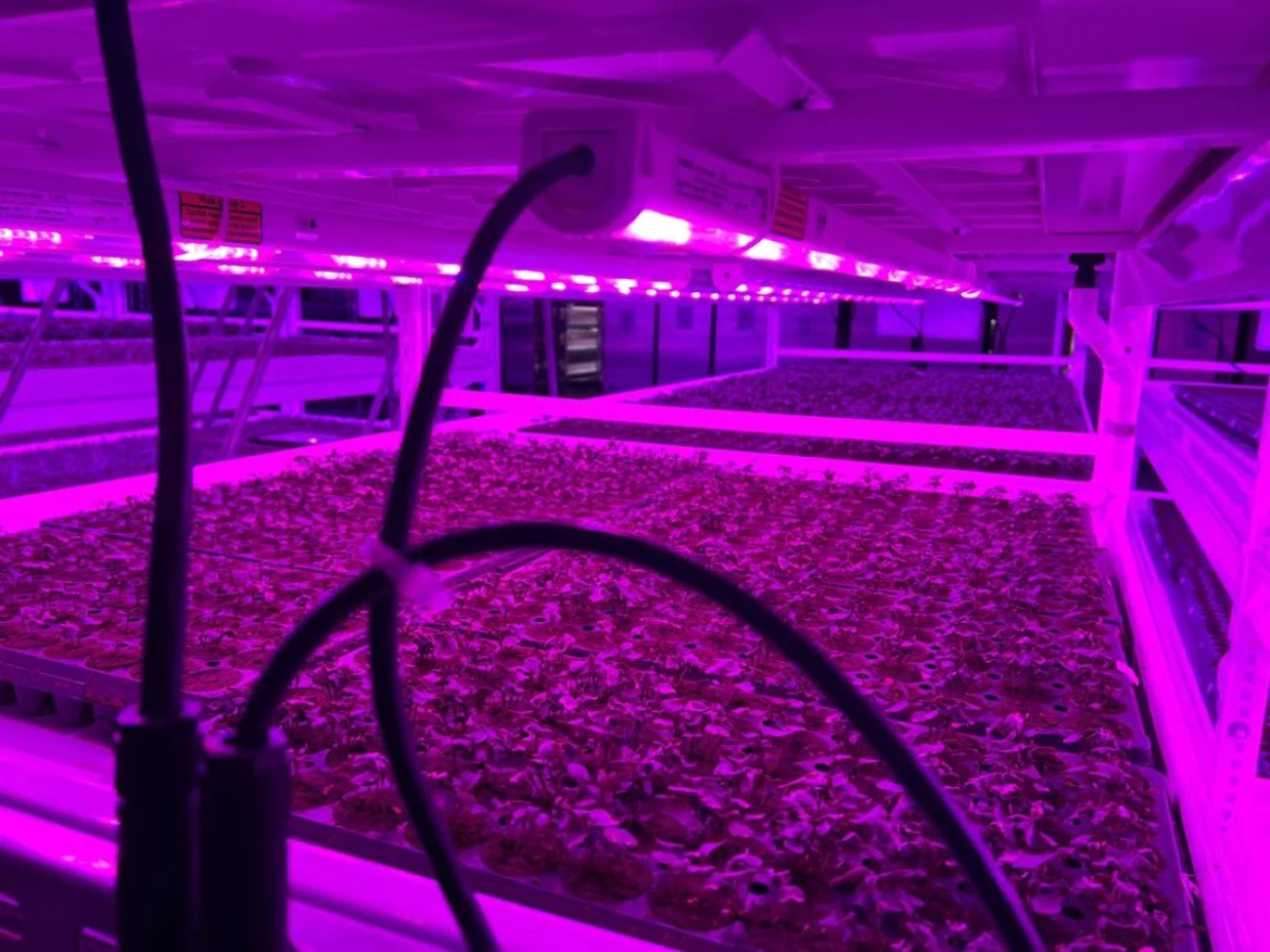
Despite these critiques, there’s been a surge in indoor farms globally – some estimates project that the vertical farming market will increase from $5.6 billion in 2022 to more than $35 billion by 2032.
But in Detroit, a city with ample vacant land (approximately 19 square miles), more than 2,000 urban gardens and farms, and a much lower median income than the national average, the benefits of growing vegetables indoors for sale at a high price point can be a tough sell.
Efforts have begun to save Planted Detroit, but whether it should be saved is up for debate. Some community leaders argue the company has provided jobs and healthy food options to local residents. But others say the company has done little to meaningfully address local food security.
Couldn’t sell enough
Planted Detroit opened in 2018 at 1000 Mt. Elliott, using technology to create an artificial environment to grow food year-round. Since then, they’ve scaled to produce thousands of salads for retail and direct subscription each week, donated food to various community fridges, and hired 75 staff – many from the neighborhood – with a starting pay of $15 an hour or higher, according to Adamczyk, who brought investment capital in the project’s launch. Last year, Planted Detroit reported record sales and the company had been in the construction phase to add an additional 10,000 square feet to its operations.
But last week, the company abruptly issued a press release announcing it would begin winding down operations and laying off its employees, even as it searched for investors to keep going.
“It’s essentially a shutdown until we can get additional funding,” said Adamczyk. The building, purchased for $1.79 million, has been paid off, he said, but the bills, combined with not scaling fast enough, means they couldn’t sell enough salads to cover costs.
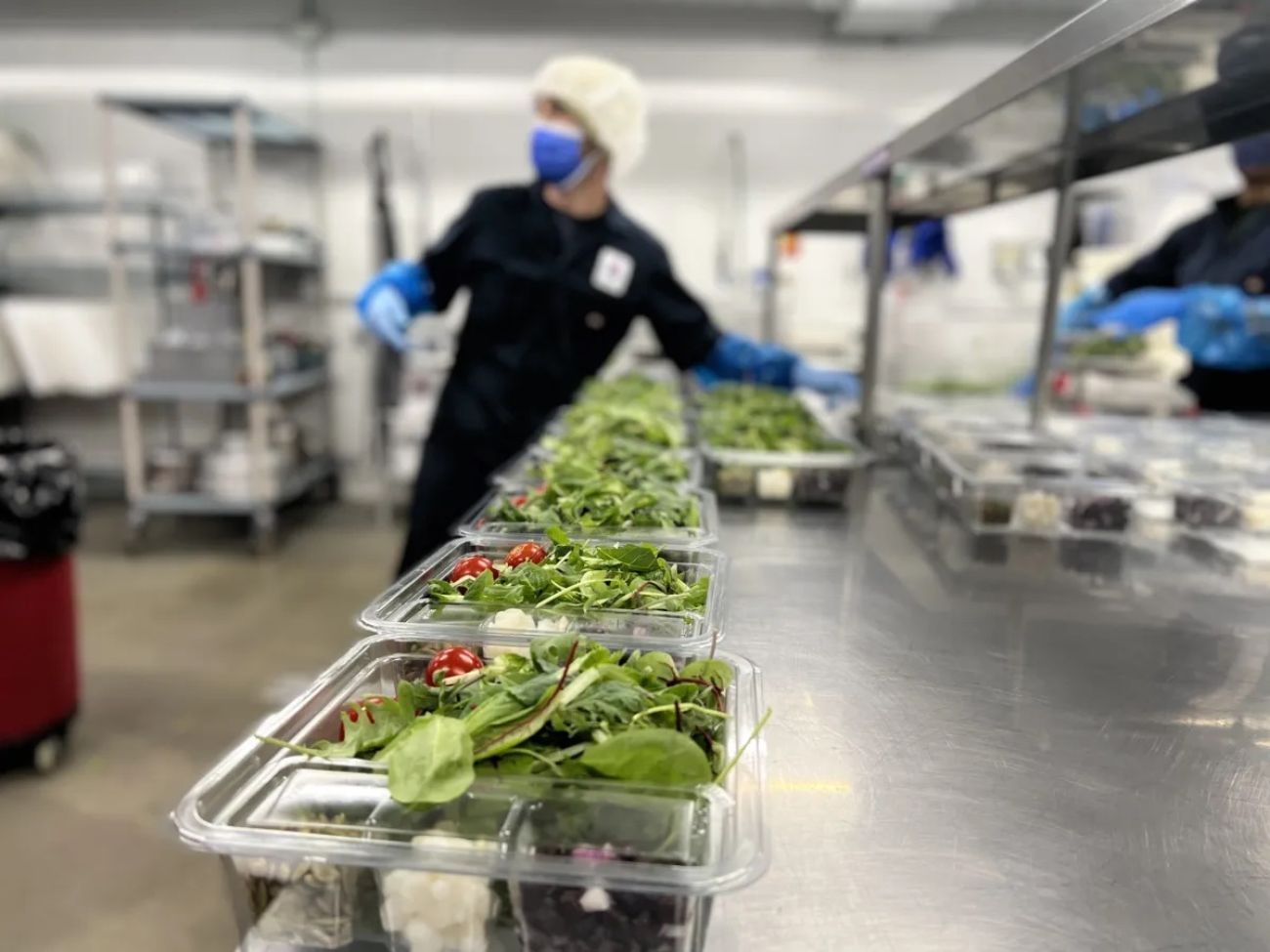
Adamczyk attributes the lower than hoped for sales volume to the cost of the products. Salads cost $14 each and a pound of greens runs $25.
“Our price point is pretty high,” said Adamczyk, adding not enough people know about Planted Detroit. Several passersby have said they thought the warehouse was a cannabis grow facility. He also acknowledged the strain of such a high electric bill – nearly $6,000 a week.
“The pure amount of electricity that’s required, it’s a tough argument,” said Adamczyk.
Staving off a closure
Jennine Spencer, president of Field Street Block Club Association, said the closing is “devastating” to the neighborhood. She is rallying to save the farm.
“They hire so many people out of the community,” she said. “The salads are actually changing people’s lives,” added Spencer, explaining the farm’s donations to community groups and free fridges mean more healthy options in the neighborhood.
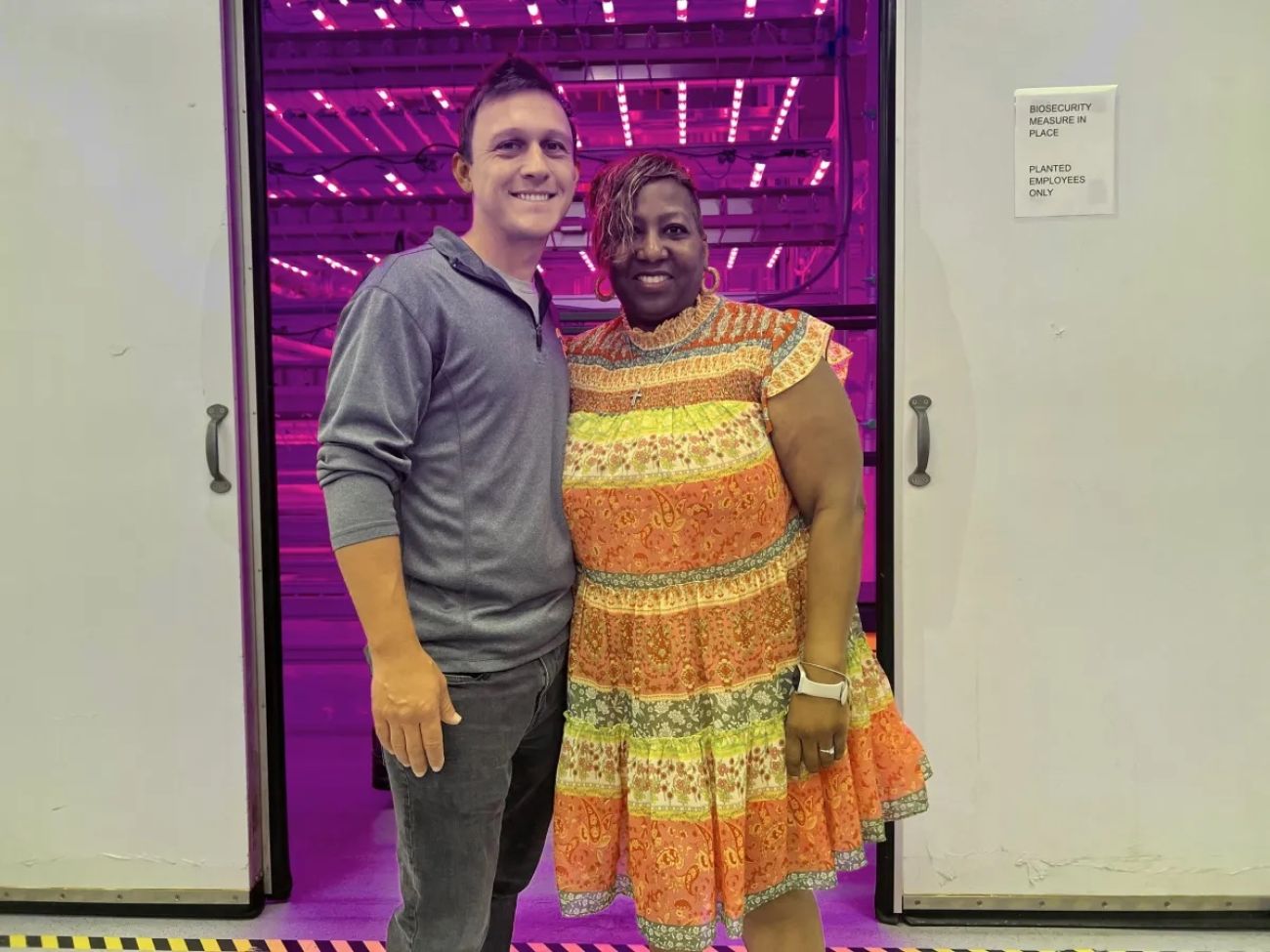
Last Friday, City Council President Mary Sheffield visited Planted Detroit for the first time with a group of students from schools across Detroit.
“I’m so impressed,” she told BridgeDetroit, calling the indoor farm a “game-changer.” She said she planned to reach out to the Detroit Economic Growth Corporation (DEGC) to try and find Planted Detroit some support, suggesting that the company could be a candidate for a Motor City Match grant.
Lanard Ingram, director of public relations for DEGC, told BridgeDetroit that the agency has
initiated conversations with Planted Detroit to “better understand their specific needs and explore how we can help continue their impact in the community.”
“We hope to find an effective path for them to continue their business operations,” Ingram said.
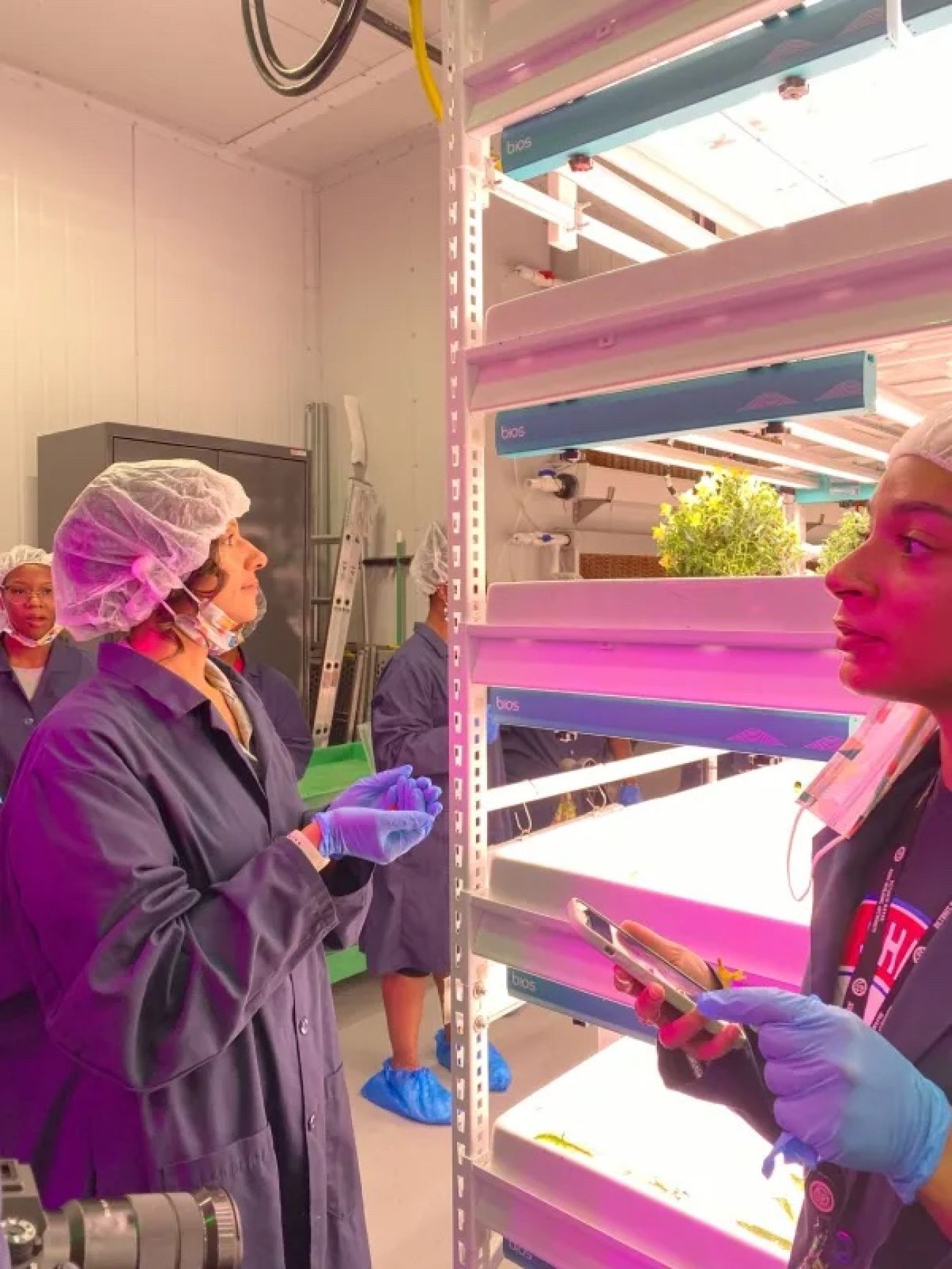
Other last-ditch efforts have included Planted Detroit negotiating a cheaper rate with DTE Energy for its electricity – Adamczyk said he secured a 15 percent rate reduction last month after asking for four years – but said it was “a little too late.”
Planted Detroit has also continued to run ads on Facebook to boost salad orders and subscribers.
Meanwhile, Adamczyk said he’s had initial conversations with the city and Bedrock to stave off the closure. Bedrock and Vertical Harvest, a Jackson, Wyoming-based indoor farming company, plan to open a 60,000-square-foot indoor farm in Milwaukee Junction in 2025 powered by clean energy. The facility would aim to produce more than 2 million pounds of produce per year, create 40-50 jobs and address local food insecurity, according to a June press release.
Bedrock declined to comment for the article.
High-tech, high-costs
Chinyere Neale, a native Detroiter who now lives in Lafayette Park, is skeptical of both Planted Detroit and Bedrock.
“If Dan Gilbert is so interested in the food security of Detroiters, he could contribute a fraction of the cost of this vertical farm in Milwaukee Junction to the Detroit Black Community Food Security Network which runs one of the largest urban farms in the country and is soon to open the People’s Food Co-op in Detroit,” she said by email.
The People’s Food Co-op is a Black-led full-service grocery store being built on Woodward, adjacent to Milwaukee Junction. It is expected to open later this year and was formed in part to address food insecurity. Since 2017, Detroit has lost 10 grocery stores and has just 64 in the 142-square-mile city.
Neale said she is also skeptical of Planted Detroit’s professed interest in reducing food insecurity.
“I don’t see how they could ever claim that food security was their goal,” Neale said about Planted Detroit. “People who can pay $25 a pound for salad greens are not food insecure.”
Neale said that Planted Detroit’s greens are by far more expensive than the ones at Whole Foods, sometimes referred to as “Whole Paycheck” where they can run up to $7 a pound. She said she understands paying more for produce to support urban farmers, and often buys at Eastern Market or direct from Detroit’s urban farms like Rising Pheasant, Brother Nature, and Beaverland Farms for between $5 and $10 per pound.
If it reopens, Field Street Block Club leader Association president Spencer said she’s asked Planted Detroit to create a $5 salad that is more accessible to residents in her neighborhood.
Brandon Seng, director of food business development for Eastern Market said Eastern Market had been working with Planted Detroit on options for expansion and support to make connections with other buyers. Seng said he thinks indoor farming in Detroit is definitely possible.
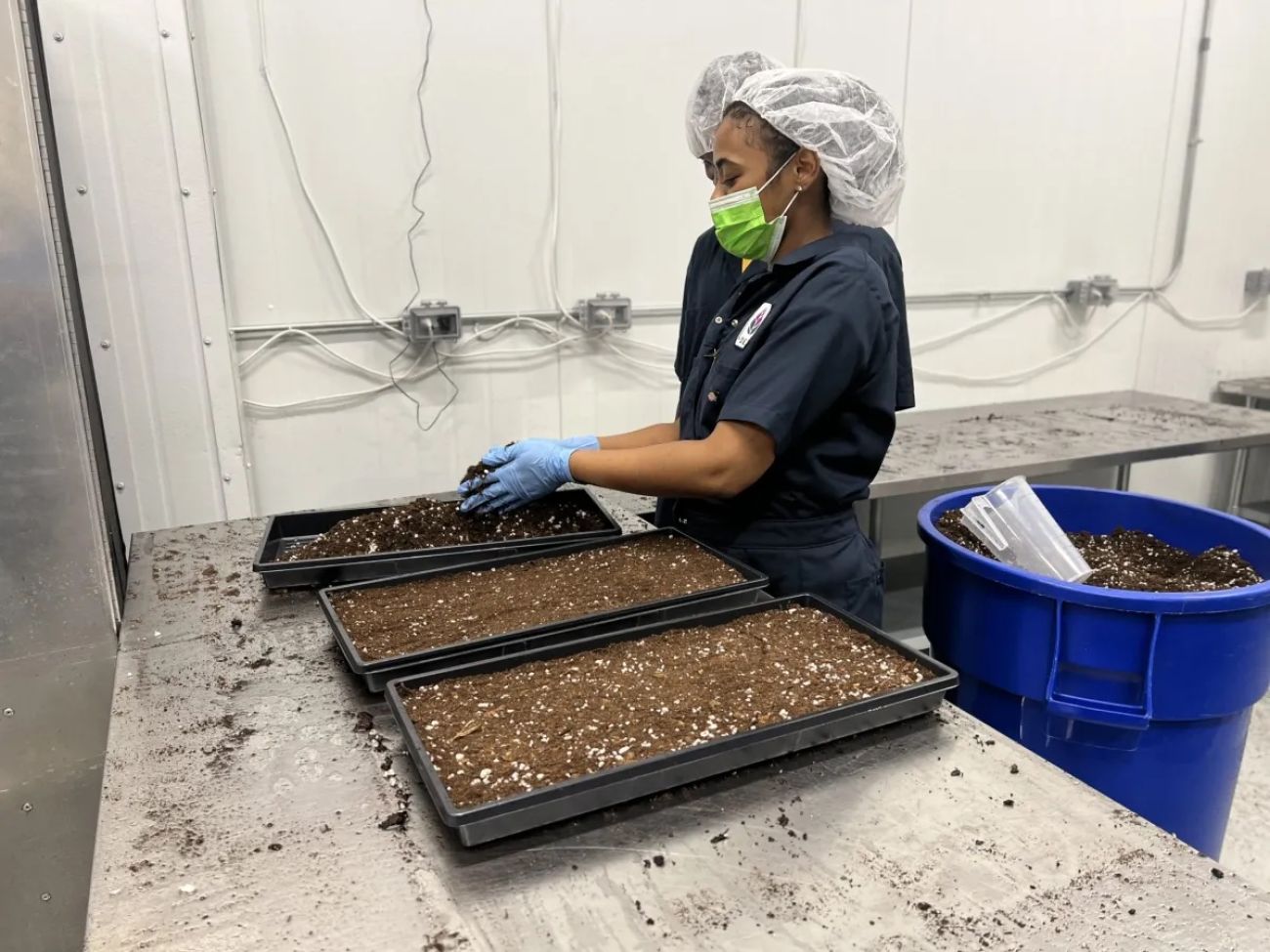
“We need indoor agriculture in the city, we need urban farms, we need rural farms shipping into the city, we need all of it in order to feed the city here,” he said.
But, he added, “The input costs that you see in indoor agriculture don’t often line up with what the market will tolerate,” pointing out that across the country vertical farms have been closing, not just in Detroit.
Adamczyk said he tried to co-opt efficiencies from the auto industry to bring down costs, even working with a local auto supplier to pioneer an automatic harvesting system. It didn’t pan out, and now his investors are pulling the plug, he said.
“My investor group has no more risk appetite,” he said. “There’s a lot of money tied up in here.”
Artesian Farms, Michigan’s first indoor vertical farm, reportedly only made profit one year in a decade of business. The company used to have an indoor vertical farm in Detroit before shutting it down and consolidating its operations in New Buffalo, despite delivering to more than 40 stores in the Detroit area.
“There has been a lot of roadkill in vertical farming over the last five or six years,” Keith Kudla, an investor in Artesian Farms, told Crain’s Detroit in 2021.
“There’s been a lot of capital flowing into the space and not a lot of money coming out,” he said.
Worst case, Adamczyk said, Planted Detroit will carve up and sell its assets. But the plan, and hope, is to have a “strategic partner that can come in and move 5,000 units a week and bring a check to the table.”
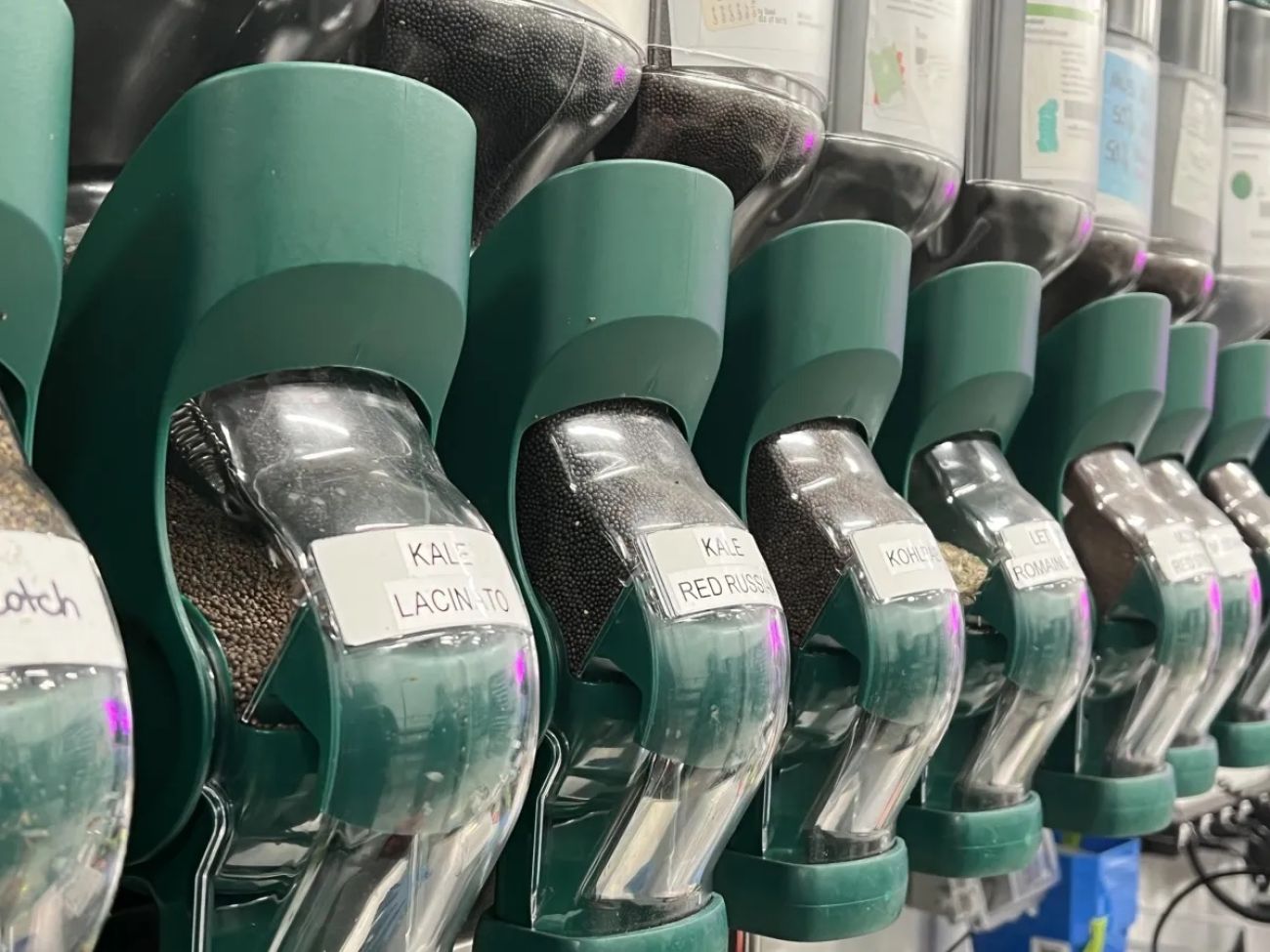
That may be a challenge if recent national trends in vertical farming are any indication.
“We’re seeing a big shakeout nationally with some larger and more well known firms,” Seng said. Pennsylvania-based Fifth Season, New York-based Upward Farms, and Florida-based Kalera have all shuttered in recent months.
And last week in Michigan, Square Roots, an indoor farm co-founded by Elon Musk’s brother, Kimbal Musk, shut down most of its locations, laying off more than a dozen people at its Grand Rapids location. The farm had more than $90 million in funding as of April 2022, according to Business Insider.
Even with such high financial barriers, indoor vertical farming holds its appeal for some.
“[Planted Detroit] is going to be known by the world – that’s the new age of farming,” said Devin Funchness, a strategic marketing ambassador for Planted Detroit, a Detroit native, and retired National Football League player. “It is the freshest source of food on the planet,” he said. “You don’t have to wash our greens, our greens are ready to eat.”
On Detroit’s east side where Planted Detroit is located, less than 1 percent of vacant land is used for urban farming, but Adamczyk would still prefer to farm indoors.
In Detroit, “soils are contaminated,” Adamczyk said. “To grow in soil is definitely a little bit scary, unsafe.”
Nina Ignaczak of Planet Detroit contributed to this report
Michigan Environment Watch
Michigan Environment Watch examines how public policy, industry, and other factors interact with the state’s trove of natural resources.
- See full coverage
- Subscribe
- Share tips and questions with Bridge environment reporter Kelly House
Michigan Environment Watch is made possible by generous financial support from:
Our generous Environment Watch underwriters encourage Bridge Michigan readers to also support civic journalism by becoming Bridge members. Please consider joining today.
See what new members are saying about why they donated to Bridge Michigan:
- “In order for this information to be accurate and unbiased it must be underwritten by its readers, not by special interests.” - Larry S.
- “Not many other media sources report on the topics Bridge does.” - Susan B.
- “Your journalism is outstanding and rare these days.” - Mark S.
If you want to ensure the future of nonpartisan, nonprofit Michigan journalism, please become a member today. You, too, will be asked why you donated and maybe we'll feature your quote next time!






